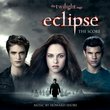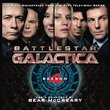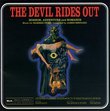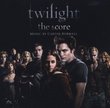| All Artists: James Bernard, Bernd Wilden, Carlos U. Garza, Hans Erdmann, Hans Posegga, Peter Schirmann, Richard Marriott, Richard O'Meara, Timothy Howard Title: Nosferatu: A Symphony Of Horrors (1998 Score To 1922 Film) Members Wishing: 1 Total Copies: 0 Label: Public Broadcasting Service (PBS) Original Release Date: 6/3/1929 Re-Release Date: 2/17/1998 Album Type: Soundtrack Genres: Alternative Rock, Pop, Soundtracks Style: Goth & Industrial Number of Discs: 1 SwapaCD Credits: 1 UPC: 738572108427 |
Search - James Bernard, Bernd Wilden, Carlos U. Garza :: Nosferatu: A Symphony Of Horrors (1998 Score To 1922 Film)
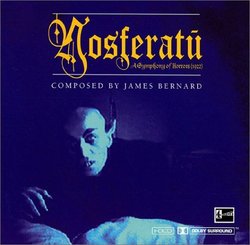 | James Bernard, Bernd Wilden, Carlos U. Garza Nosferatu: A Symphony Of Horrors (1998 Score To 1922 Film) Genres: Alternative Rock, Pop, Soundtracks
|
Larger Image |
CD DetailsSimilar CDs
|
CD ReviewsA great score for a great silent classic Ray Neslowe | Grays Harbor, WA | 09/27/2004 (4 out of 5 stars) "Firstly, a couple of errors on the previous reviews. In John Bush's All Music review, he states this was composed for an American release. Not so. Bernard composed this new score for a series of silent films on the BBC's Channel 4. (Carl Davis's score for Chaney's Phantom of the Opera is another one in that series well worth picking up.)Secondly, Michael from Kent states that there were never scores composed specifically for silent films. Again, not so. Many later silent films--especially the big-budget films--had scores specially commissioned for them and orchestrated for any number of instrumentations. The same score often was written out for orchestra, small bands, and even solo piano or organ, so that it could be played in venues of all different sizes. (The book Film Music by Roy M. Prendergast is an excellent resource on this point.) And, in fact, Nosferatu had a score written specially for it by Hans Erdmann. Now, unfortunately, that "original" score was mostly lost. What fragments that remained were pieced together and filled out with Erdmann's other film music for a disc on RCA conducted by Gillian B. Anderson. The same thing was done with Giuseppe Becce's fragments for Cabinet of Dr. Caligari on Koch, and both are worth seeking out. So, there were "original scores" for silent films, this just doesn't happen to be one.Finally, the disc itself. For fans of Bernard's work on the Hammer films this is a must have. Far more mature and interesting than some of his earlier work, it nonetheless retains the elements that made his scores so exciting in the first place. I would rank it among his best work in the genre. For fans of more romantic work like Waxman and Rozsa should see if they can find a copy of the Erdmann score." Best Nosferatu soundtrack I've ever heard!! caesarrdn | Connellsville, PA United States | 12/13/2004 (5 out of 5 stars) "I own three editions of Nosferatu on DVD, with five different soundtracks between them, but none of them come nearly as close to capturing the essence of Murnau's masterpiece as James Bernard's powerful score. I can close my eyes while listening to this CD and visualize the action as it plays along with the music...from Orlok's menace to Hutter's naivete to Ellen's dark foreboding...it's all here! I was impressed with Bernard's work with Hammer films, and he definitely didn't disappoint with this one. Unlike the other scores, the majority of which were anachronistic (using sounds and styles quite out of place set against the 1922 vintage of the film), this one has a credibility...although this is by no means the original soundtrack (which, as someone else here pointed out, has been lost to the ages save for a few fragments), it is surely a candidate for the best score to take its place. That being said, it is a true shame that there is no edition of Nosferatu out on the market with this soundtrack...this score was composed for a British television presentation of the movie, but I can't seem to find any information as to whether or not this edition of the film was ever released to the public on VHS or DVD. I tried playing it with my Alpha Video version of Nosferatu (which, at 64 minutes, is the only one that matches the length of the CD) but the movie constantly lagged behind the corresponding music). If Kino or Image ever decides to release a newer edition of Nosferatu on DVD, they would do well to lose the avant-garde scores and use this instead." A STAND-OUT PERFORMANCE Charles H. Levenson | new jersey | 09/21/2006 (4 out of 5 stars) "Written long after the original film was in theatres,this item ,while associated with the silent-era vampire classic,might just as well be viewed as a theme-oriented symphony...The theme,of course,is good and evil,the latter personified in the vampire nosferatu..Many symphonic pieces start with a particular theme in mind,and then develop cues that advance thier musical storyline..Even given the fact that this was a score written to back up an existing silent movie the resulting work can stand alone,without specific reference to the film itself..Sort of like a classical symphony piece that just happens to compliment a movie..Phillip Sainton,another classical composer,took his short classical symphonic piece"The Island"and,with some additions,turned it into the score for the John Huston classic"Moby Dick"...But one can listen to"The Island" and experience the same flow without actually knowing that,in a slightly different form,it became the score for a major motion picture...Here we have a similiar situation,in that the music,which more or less runs together rather than being divided into specific cues to serve behind specific scenes,creates an atmosphere that clearly suggests some great contest between light and darkness..."
|

 Track Listings (14) - Disc #1
Track Listings (14) - Disc #1